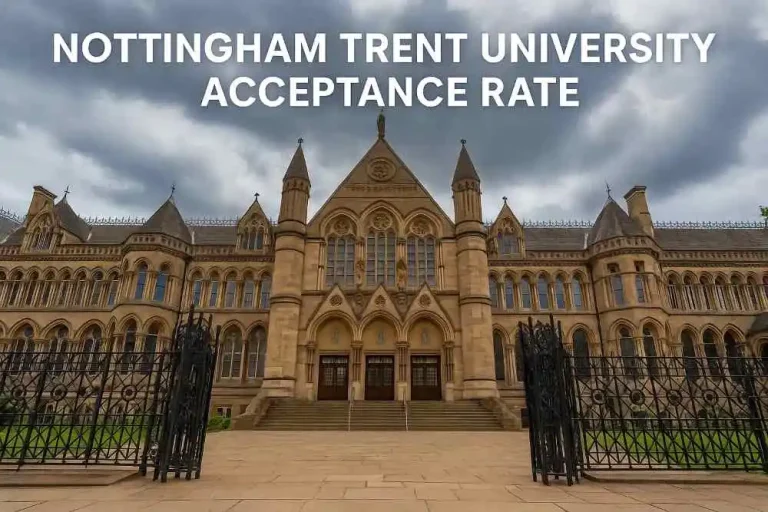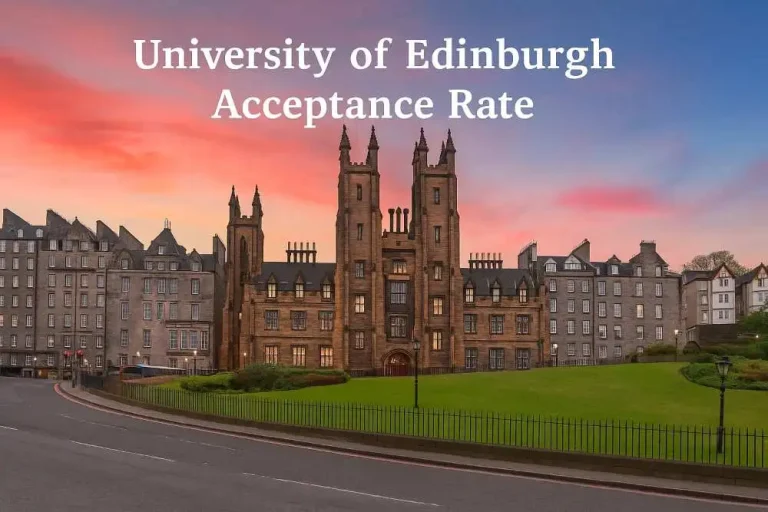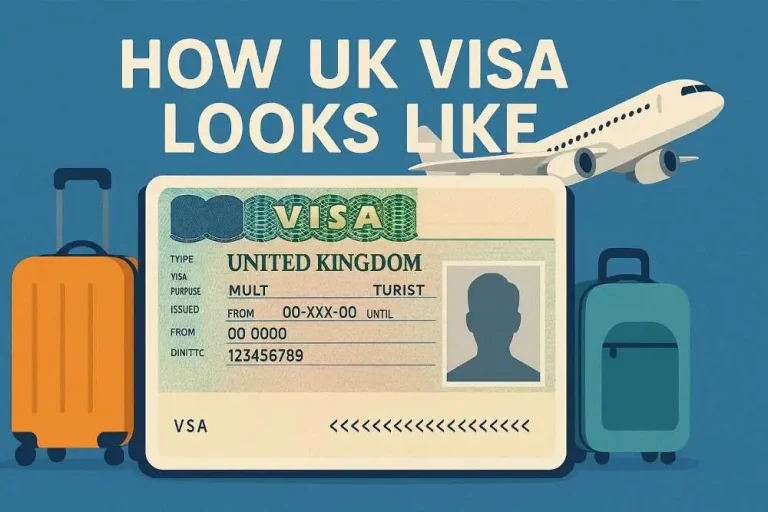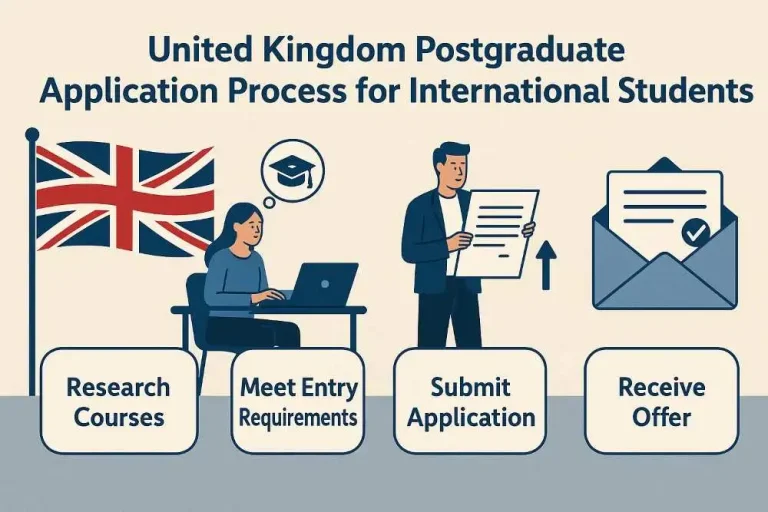The University of Sheffield is one of the UK’s most prestigious institutions, renowned for its academic excellence and vibrant student life. As an international student, applying to this esteemed university is a competitive process. Understanding the University of Sheffield acceptance rate is crucial in preparing a successful application. In this guide, we will dive into the acceptance rate of the University of Sheffield, its entry requirements, scholarships, accommodation options, and much more, so that you can make informed decisions and improve your chances of acceptance.
What is the University of Sheffield Acceptance Rate?
The acceptance rate for the University of Sheffield varies by program, but on average, it hovers around 12% to 15%. However, the acceptance rate can vary depending on the course you apply for, as some programs, such as those in Medicine, Engineering, and Law, are more competitive. In general, the University of Sheffield acceptance rate for international students is relatively competitive, reflecting the high quality of education and research the university offers.
Key Points:
- General Acceptance Rate: 12% to 15% (subject to course)
- Postgraduate Acceptance Rate: Slightly lower due to the specific qualifications required.
- Acceptance for International Students: Varies based on the course, and international students often have to meet higher academic and English language requirements.
How to Improve Your Chances of Getting Accepted
While the acceptance rate of Sheffield University can be competitive, there are ways to improve your chances of getting into your desired course:
- Meet or Exceed Entry Requirements: Ensure you meet the academic and English language requirements for your chosen course. Higher qualifications often increase your chances.
- Submit a Strong Application: Your personal statement and references are crucial in determining whether you’ll be accepted. Be sure to showcase your passion for the course and your commitment to studying at the University of Sheffield.
- Prepare for an Interview: Some courses, such as Medicine or Dentistry, may require an interview. Practice common interview questions and demonstrate why you’re an excellent fit for the program.
- Take Advantage of Scholarships: The University of Sheffield offers several scholarships that can improve your application. Some scholarships are merit-based, while others are designed for international students.
University of Sheffield Entry Requirements
The entry requirements for Sheffield University depend on the course you are applying for. However, most undergraduate programs require the following:
- A-Level or equivalent qualifications: For example, you’ll typically need 112-128 UCAS tariff points (based on A-levels, the equivalent of 3 C’s to A’s).
- Postgraduate Programs: You typically need a 2:1 in a relevant undergraduate degree or its international equivalent.
For international students, proof of English proficiency (such as IELTS or TOEFL scores) is often required. The University of Sheffield requires an IELTS score of 6.0 to 7.0 for undergraduate courses, depending on the course, and a score of 6.5 to 7.5 for postgraduate programs.
University of Sheffield Tuition Fees
Tuition fees at the University of Sheffield vary depending on your course and whether you’re an international or home student:
- Undergraduate Fees:
- Home students: £9,250 per year
- International students: £17,000 to £26,000 per year, depending on the course
- Postgraduate Fees:
- Home students: £10,000 to £18,000 per year
- International students: £17,000 to £32,000 per year, depending on the program
Living costs in Sheffield (accommodation, food, travel, etc.) can range from £1,000 to £1,500 per month, depending on lifestyle and accommodation choices.
Scholarships at the University of Sheffield
The University of Sheffield offers a variety of scholarships for both domestic and international students. Some of the prominent ones include:
- Sheffield Postgraduate Scholarships: These are available to international postgraduate students with an outstanding academic record.
- The GREAT Scholarships: Available for students from specific countries.
- International Merit Scholarships: Offers financial support to high-achieving international students at the undergraduate and postgraduate levels.
- The University of Sheffield Scholarship for Excellence: This scholarship is designed for international students with outstanding academic performance.
For more information on scholarships, visit the University of Sheffield scholarships webpage to check eligibility criteria and deadlines.
University of Sheffield Accommodation
The University of Sheffield accommodation options are diverse and cater to different preferences and budgets. You can choose from:
- University-managed Halls of Residence: These offer a safe, supportive environment, and many are within walking distance of the university. Rent ranges from £100 to £160 per week.
- Private Halls: Available for students who prefer independent living. Prices range from £120 to £200 per week.
- Private Rentals: Students can also rent apartments or houses in Sheffield. Rental prices range from £500 to £700 per month, depending on location and property type.
The University of Sheffield also provides support for finding accommodation and understanding tenant rights.
University of Sheffield Campus and Facilities
The University of Sheffield campus is located in the heart of Sheffield, providing students with access to world-class facilities:
- University of Sheffield Library: One of the largest and most modern academic libraries in the UK, offering students access to vast resources and study spaces.
- Sports Facilities: The university is renowned for its sports programs, with access to state-of-the-art gym facilities and outdoor sports areas.
- Student Union: A vibrant student union with clubs, societies, and services that help students feel connected to university life.
- International Student Support: The university offers tailored support for international students, including orientation programs, visa guidance, and cultural events.
University of Sheffield Notable Alumni
The University of Sheffield has a rich history and has produced numerous notable alumni who have achieved success across various fields. Some of the prominent alumni include:
- Sir David Blunkett: Former UK Home Secretary.
- Baroness Valerie Amos: Director of the School of Oriental and African Studies (SOAS).
- Jessica Ennis-Hill: Olympic gold medalist in athletics.
University of Sheffield Acceptance Rate for International Students
The acceptance rate for international students at the University of Sheffield tends to be competitive. As the university attracts a large number of applicants globally, international students are typically required to meet specific academic and language requirements. On average, around 10-15% of applicants are accepted, depending on the course.
Conclusion
The University of Sheffield is one of the leading universities in the UK, offering a wide range of academic programs, financial support options, and excellent student services. With its competitive acceptance rate, diverse student body, and top-tier academic reputation, it is a great choice for those seeking higher education in the UK.
If you meet the entry requirements and are ready to submit your application, Sheffield University could be the ideal place to further your studies. Don’t forget to explore scholarship opportunities and carefully review your accommodation options to ensure you have everything you need for a successful academic journey.
Good luck with your application!
FAQ
-
What is the acceptance rate for the University of Sheffield?
The acceptance rate for the University of Sheffield is approximately 15%, though this may vary depending on the program.
-
What are the entry requirements for international students at Sheffield University?
International students must have the equivalent of a UK 2:1 in their undergraduate studies, proof of English proficiency (IELTS/TOEFL), and meet specific course requirements.
-
Does the University of Sheffield offer scholarships?
Yes, the university offers various scholarships for both international and domestic students, including merit-based and country-specific awards.
-
How much are tuition fees at the University of Sheffield?
Tuition fees for international students range from £17,000 to £32,000 per year, depending on the program.
-
What is the average cost of accommodation at Sheffield University?
Accommodation costs at Sheffield University range from £100 to £200 per week, depending on the type of accommodation.
-
What are the most popular courses at the University of Sheffield?
Some of the most popular courses include Engineering, Law, Medicine, Business, and Social Sciences.
-
How can I apply to the University of Sheffield?
You can apply to the University of Sheffield through the UCAS system for undergraduate programs and directly through the university’s website for postgraduate programs.
-
What is the ranking of the University of Sheffield?
The University of Sheffield ranks in the top 20 universities in the UK and is highly regarded for its research output and academic excellence.
-
Does the University of Sheffield offer postgraduate programs?
Yes, the University of Sheffield offers a wide range of postgraduate programs in various disciplines, including engineering, business, law, and medicine.
-
Can I find student finance or financial aid for my studies at the University of Sheffield?
Yes, the university provides financial aid options for international students, including scholarships and loans, depending on your country of origin.








